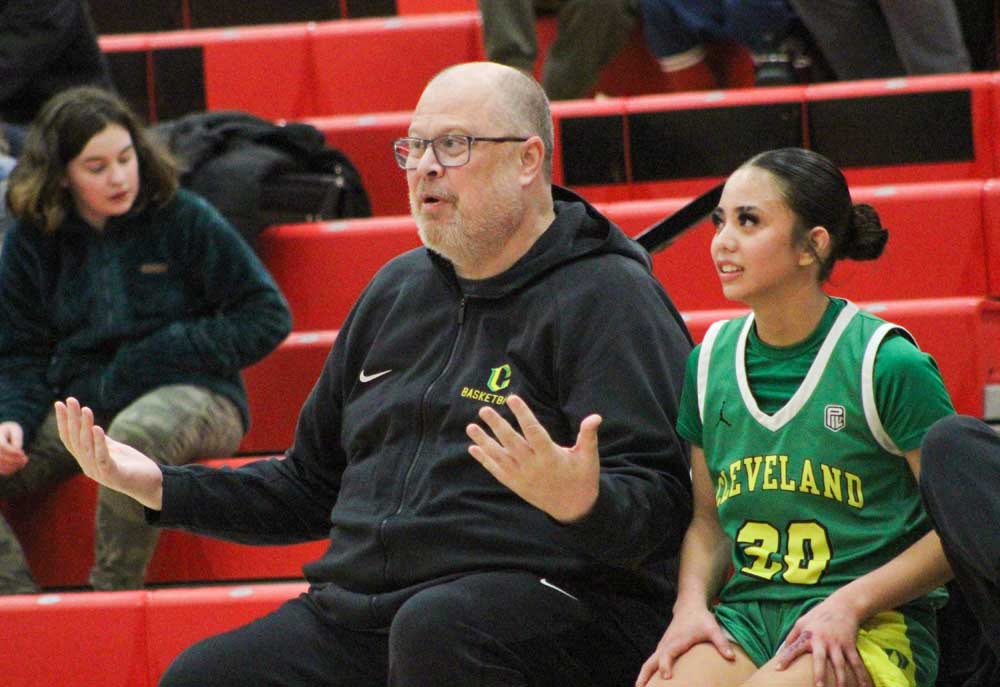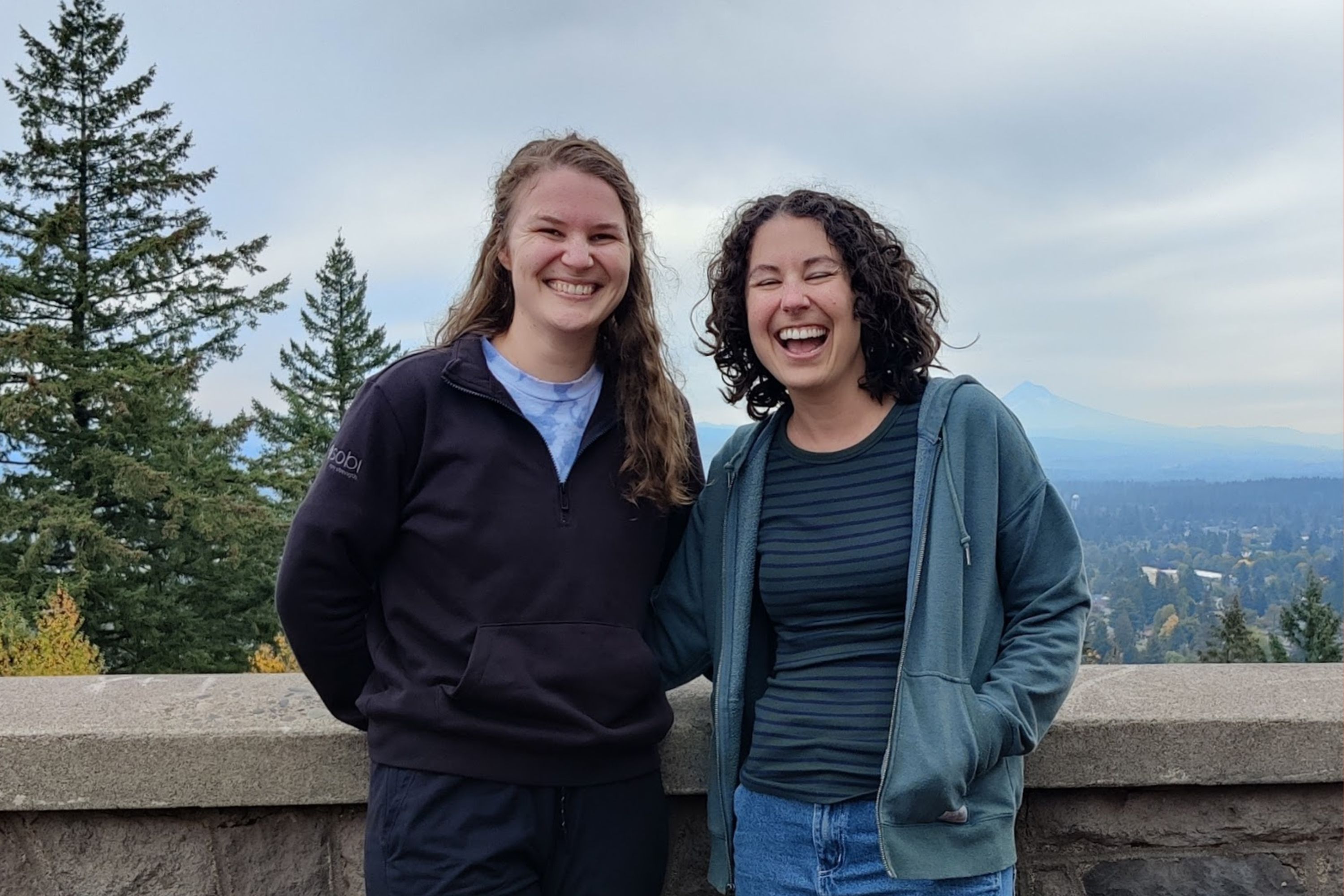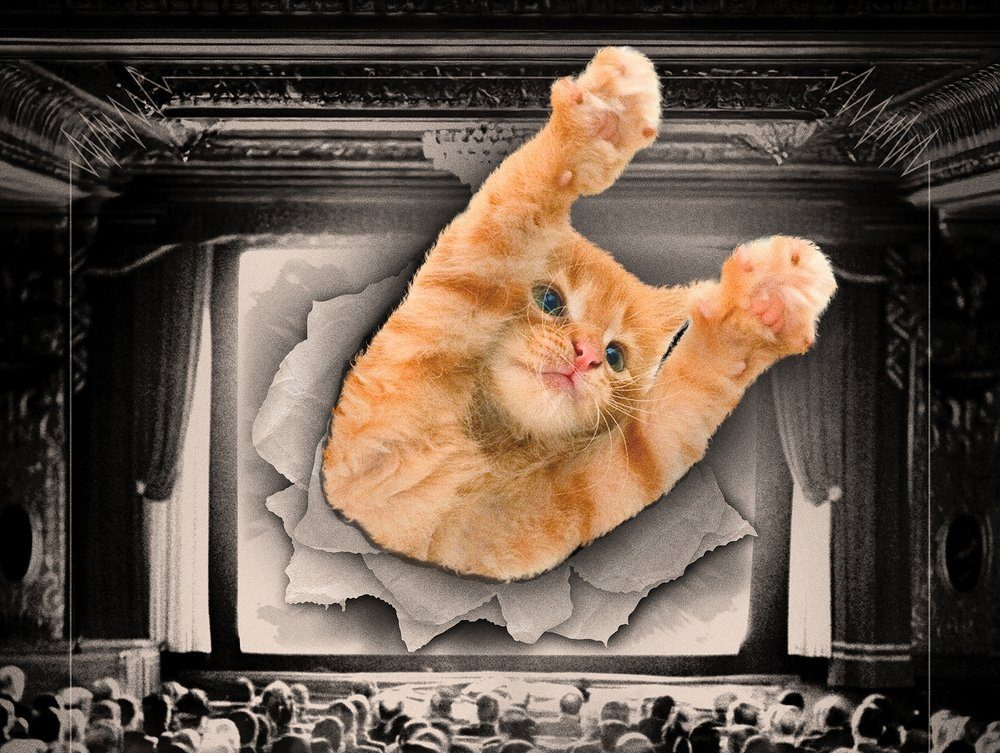Cleveland High’s Poeko Waiwaiole shares Hawaiian legacy in the classroom
Published 1:45 am Saturday, March 15, 2025

- Cleveland girls basketball head coach Poeko Waiwaiole, left, asks about a call during a game against Lincoln on Jan. 31 at Lincoln High School. Waiwaiole has been the head coach of the Warriors since the 2017-18 season.
(PORTLAND) — Growing up, Poeko Waiwaiole swore he wouldn’t become a teacher and coach like his dad, Lono.
Trending
Born in Salem, Waiwaiole grew up in Forest Grove and eventually attended Pacific University.
Instead of teaching, Waiwaiole was interested in his dad’s job before teaching, which was being a journalist.
“I was a little bit oppositional, I think, when I was in high school,” Waiwaiole said. “I was like, ‘I don’t know what I want to do, but I know I’m not going to be a teacher or a coach.’”
Trending
Waiwaiole started doing freelance work for the Forest Grove News-Times, covering sports while working part-time at JCPenney.
Interestingly, the wife of sports editor John Heldt worked at the same JCPenney, giving Waiwaiole a complete picture of their lives.
When Waiwaiole expressed he was thinking about going into journalism as a career, he was told not to do it by Heldt because the editor’s wife made more money working at JCPenney.
“I took that seriously and didn’t end up choosing journalism,” Waiwaiole said.
While Waiwaiole took the advice and didn’t go into journalism, he was still stuck on doing something else with his history degree.
At first, he worked with juvenile offenders and at-risk youth in the middle of the 1990s, but the call to the classroom was always there and eventually won the battle.
“At some point, I just realized I was being really stupid. The obvious choice is to be a teacher,” Waiwaiole said. “Spent two years working and then went back to get my Master’s in teaching and got my first job in Maupin, Oregon.
“And I don’t regret it at all. I’m glad I got over being oppositional. The best possible job is doing what my dad was doing.”
Waiwaiole got his first teaching gig at South Wasco County High School in Maupin, which had less than 100 students at the time and still has.
From there, Waiwaiole bounced around a bit, returning home to work in the Forest Grove School District after stops in Hawaii, Beaverton and southern Virginia.
Those roads eventually led to Cleveland High School, where Waiwaiole has been teaching social studies since 2015 and has been the girl’s basketball head coach since 2017.
In the classroom, Waiwaiole has primarily taught modern world history to freshmen and government and economics to sophomores. He has also taught ethnic studies as an elective during the past 10 years.
On the court, Cleveland girls basketball has gone 90-83 under Waiwaiole, 100-89 if you count the 2020-2021 season, which was canceled due to COVID-19. Cleveland has made the playoffs every year except the 2019-2020 season, with one playoff win in 2022.
Teaching history was the easy choice, as Waiwaiole described the stories being told by his dad growing up as always relating to history. And it’s the essence of storytelling that Waiwaiole tries to capture with his teaching of the subject.
“Even people who don’t think they like (history), they just don’t like the history of what they’ve been studying, or they don’t like how it’s being presented,” Waiwaiole said. “We are a story people … People love to find out what happened. It’s an impulse across all cultures, eras, times, races, creeds, everything else.”
The storytelling aspect leads to another aspect of what draws Waiwaiole to the subject: the openness of the process to anyone, regardless of how many college degrees a person may have.
Waiwaiole believes history can be taught through a community and by finding primary sources in the world, leading to the opportunity to share history outside of a textbook.
“We have people who pretend like they’re official historians and they have all these certifications and wrote books or whatever, but you can do some legwork about whatever it is you’re interested in,” Waiwaiole said. “Get a bunch of primary sources if you can find them, get a whole bunch of secondary sources, and then you can basically share a history of anything you think you understand well enough to do so.
“It’s a process that’s pretty open to anyone who wants to put the time in to figure it out.”
Waiwaiole described how, in class, he’ll challenge his students to take in a piece of media and ask which perspectives are missing from the piece. And from there, the question becomes why that context is missing, whether it’s because they didn’t want people to know or maybe it was too hard to find.
Finding those new perspectives is critical to Waiwaiole, who is part Hawaiian. He once tried to move to Hawaii, but with triplets expected with his wife and the price of the islands continuing to push natives out, Waiwaiole and the family returned to Oregon.
Reconnecting with his Hawaiian roots was the goal, as he had to learn about them through history growing up.
“I learned about my own culture and my own background from a historical perspective first,” Waiwaiole said.
With a family history linked to people who have felt the negative effects of American imperialism, Waiwaiole described his ethnic studies class as the most important class he’s ever taught.
At Cleveland, the student population is about ⅔ white, according to Waiwaiole, allowing him to teach a group of kids who might not know the history or challenges that face people of color.
Waiwaiole described how, on back-to-school nights, he tells parents the story of his own family and how his grandfather’s name is Benjamin despite him being a full-blooded Hawaiian.
At the time, it was required by law to have an English first name in Hawaii in an attempt to assimilate the natives to Western living. So when Benjamin left the island and had Waiwaiole’s dad, Lono, the goal was to ensure all his kids had full-on Hawaiian names.
“I like to think of it as I’m kind of the tour guide,” Waiwaiole said. “I’ll share (that story) with people, and most people have never heard about rules on what you can name your kid because most of the United States didn’t have rules about it. … If you know about stuff like that, you know. But if you don’t, you’d never know.”
Waiwaiole has continued that tradition with the naming of his children, the youngest of the bunch being triplets who graduated from Cleveland last year in Kamakila, Malia and Pokii.
Even with all his kids out of the nest, Waiwaiole returns to three factors that keep him energized about teaching.
First, he’d much rather spend his time with kids than be part of the boring adult world.
“They’re more energizing and entertaining and less irritating as a group than adults,” Waiwaiole said.
Secondly, Waiwaiole enjoys being more than just a history teacher. He wants to help guide his students in their overall approach to life and be a small influence away from home.
“I’ve taught freshmen for a lot of my career … It’s more about, ‘Here’s how you approach the law school you have to go to,’ or ‘Here’s how you figure out how to grow up,’” Waiwaiole said. “None of that has anything to do with the subject I’m teaching. That’s just sort of how to make this work for you in a way that’s going to be good and be positive for you.”
Finally, Waiwaiole is grateful for history because of its potential to connect across all kinds of people. The key is finding the right presentation to make it stick.
“If Charlie Chaplin falls down, everyone still laughs right now,” Waiwaiole said. “There are certain things that are kind of universal. Even if it’s something people don’t care about … if you frame it the right way, it’s all universal and still hooks them.”
Ultimately, though, it comes back to Waiwaiole’s love for future generations.
From their energy in the classroom or on the court to the potential of molding them into young adults, Waiwaiole still enjoys his time around youngsters every day.
And if you’re going to make it in this industry, that’s the most important job requirement in Waiwaiole’s eyes.
“Teaching is super hard if you don’t like kids because then kids aren’t gonna like you, and then it becomes really miserable really fast,” Waiwaiole said. “Kids are pretty simple. If you like them, they’ll generally like you back, it’s not more complicated. And that’s more important than any other factor.”
Community: Portland
Why he is amazing: Waiwaiole not only does a great job leading the girls basketball team, but he teaches important life lessons in the classroom that go beyond a history book.
“And I don’t regret it at all, I’m glad I got over being oppositional. The best possible job is doing what my dad was doing.”
— Poeko Waiwaiole
TriMet







